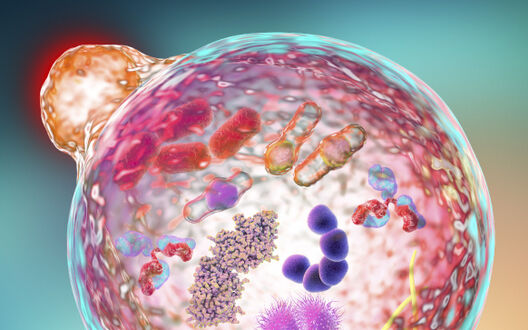The molecular mechanisms underlying asymmetric segregation of aging factors in mammalian neural stem cells
Stem cells decline with age, contributing to organismal aging. It’s been found that neural stem cells, or stem cells in the brain, rejuvenate themselves during cell division by passing damaged material to just one of their two daughter cells while leaving the other cell clean. But this process deteriorates with age, causing both daughter cells to inherit damaged material and limiting their function.
Because of the technical difficulty in studying this event in dividing stem cells, there is very little information on its underlying molecular mechanisms. To better understand this process and reveal novel targets for stem cell aging, new technologies are needed.
Dr. Moore will address this need by creating a novel live-imaging screening platform to study stem cells as they divide. The platform will take images of how the cells segregate damage by tracking fluorescent fusion proteins during division. By applying these automated imaging techniques to a genome-wide study in stem cells, Dr. Moore’s team will observe which mutations lead to changes in segregation. “Hits” from this screen will be characterized for how they change with age, how they function in asymmetric segregation, and whether their functioning can be improved to rescue aging stem cell behavior.
Dr. Moore believes that understanding this segregation system in neural stem cells may also be informative in understanding what happens in other stem cells of the body. Therefore, her experiments could greatly contribute to the field of stem cell biology and aging, and identify therapeutic targets to improve aging-related diseases.



